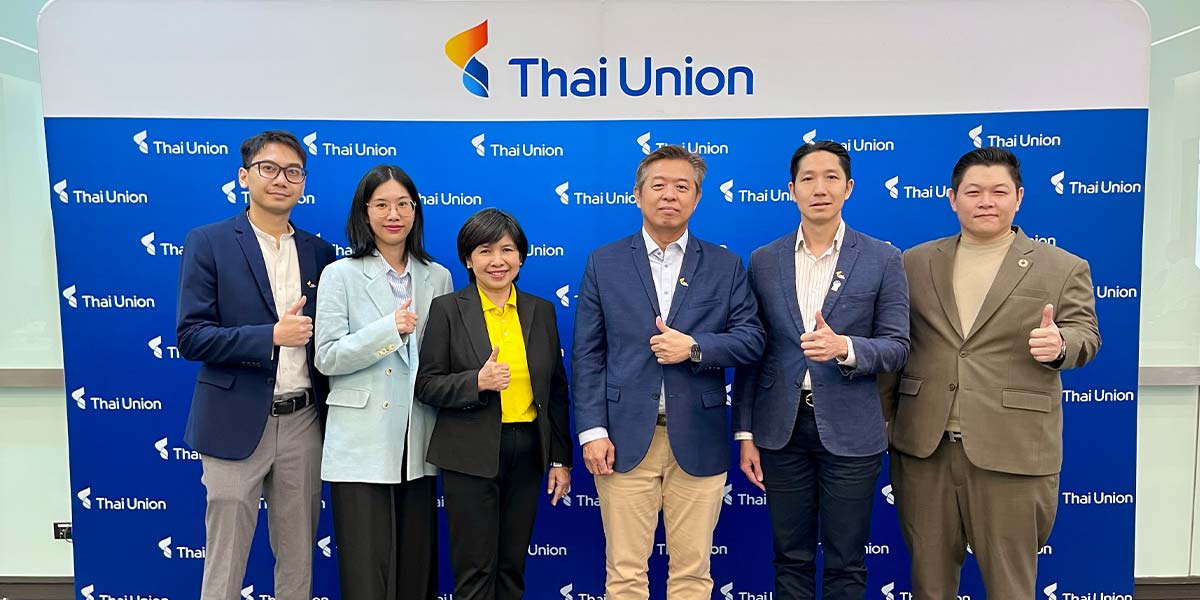Thai Union Group Public Company Limited (SET: TU), one of the world’s leading seafood producers, is pressing forward with its Shrimp Decarbonization Project by fostering extensive collaboration across public, private, agricultural, and financial sectors. During the UN Global Compact Network Thailand (GCNT) Expo 2025, the company outlined its vision to expand joint efforts in innovation and investment—aimed at scaling the success in leveraging Blue Finance, a financial mechanism designed to support the sustainability of marine environments, to enable greenhouse gas (GHG) emission reductions at shrimp farms as part of its goal to achieve Net Zero emissions.
The panel discussion, themed ‘Blue Financing and Aquaculture: Empowering the Sustainability Transition – Unlocking Collaboration Opportunities and Mechanisms for Sustainable Aquaculture,’ brought together experts from government agencies, financial institutions, entrepreneurs, and shrimp farming representatives. They explored pathways to improve access to funding and knowledge, and discussed how adopting innovations can help shrimp farmers reduce environmental impacts while positioning the seafood industry for sustainable long-term growth.
Core discussions focused on Thai Union’s concrete initiatives to reduce GHG emissions in shrimp aquaculture. The company seized on the potential to expand low-carbon shrimp farming practices nationwide, supporting both its own and the industry’s Net Zero targets by 2050.
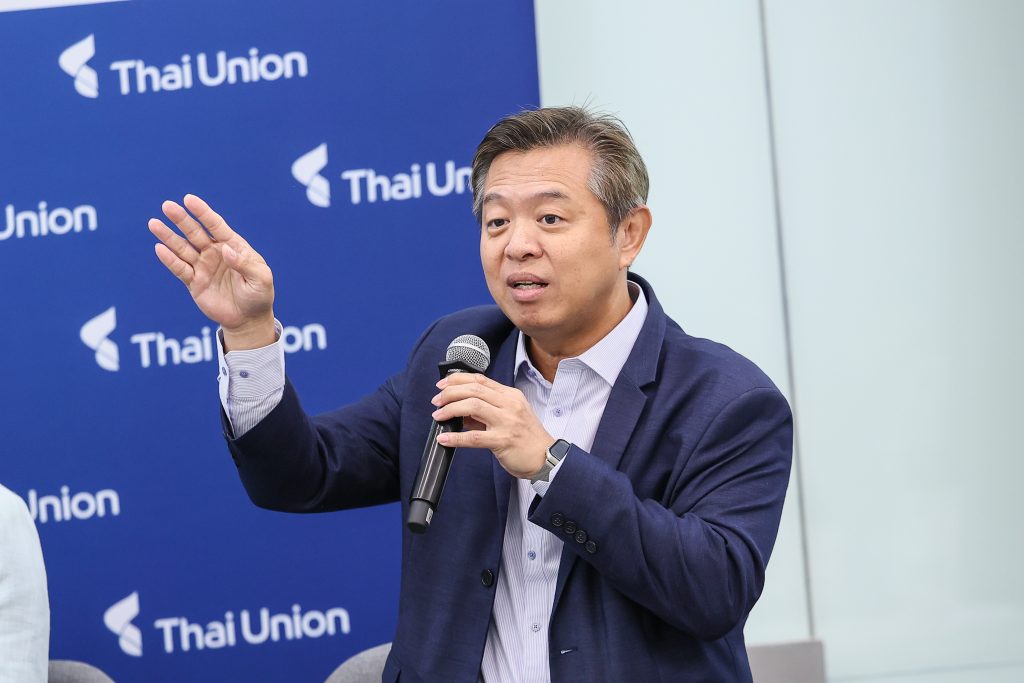
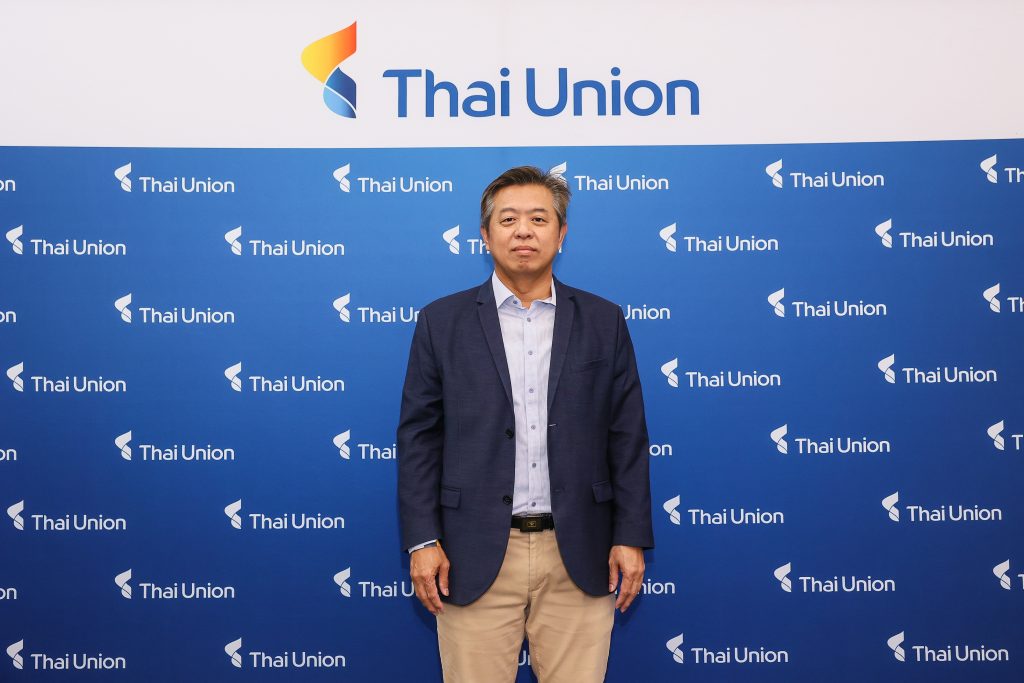
Mr. Yongyut Sateviwat, Managing Director – Group Treasury Management and Shared Services at Thai Union Group, remarked, “As a global seafood industry leader, Thai Union is committed to driving sustainability across this sector through various missions. A central focus is GHG reduction in Thailand’s aquaculture industry. Our aim is for 75% of our long-term funding by 2025 to be sustainability-linked. We believe Blue Finance—a financial mechanism promoting sustainability of marine environments—is key to unlocking vital resources for all stakeholders, driving knowledge transfer, innovation, and technology adoption across the entire supply chain and fueling the growth of the Blue Economy.”
Thai Union’s low-carbon shrimp pilot is already producing tangible results, with farmed shrimp now available in the U.S. through major retailers such as Chicken of the Sea, in partnership with The Nature Conservancy (TNC), Ahold Delhaize USA, and Whole Foods Market. Participating farms have reduced GHG emissions through scientifically grounded, practical methods including renewable energy integration, energy efficiency upgrades, and advanced farming technologies. The shrimp is traceable from farm to shipment, reassuring consumers it was produced sustainably.
The forum also welcomed representatives from the Asian Development Bank (ADB), the Department of Fisheries, and shrimp farmers participating in the project to share perspectives on opportunities and barriers to financial access via Blue Finance, and strategies for advancing sustainable aquaculture, both in Thailand and globally.
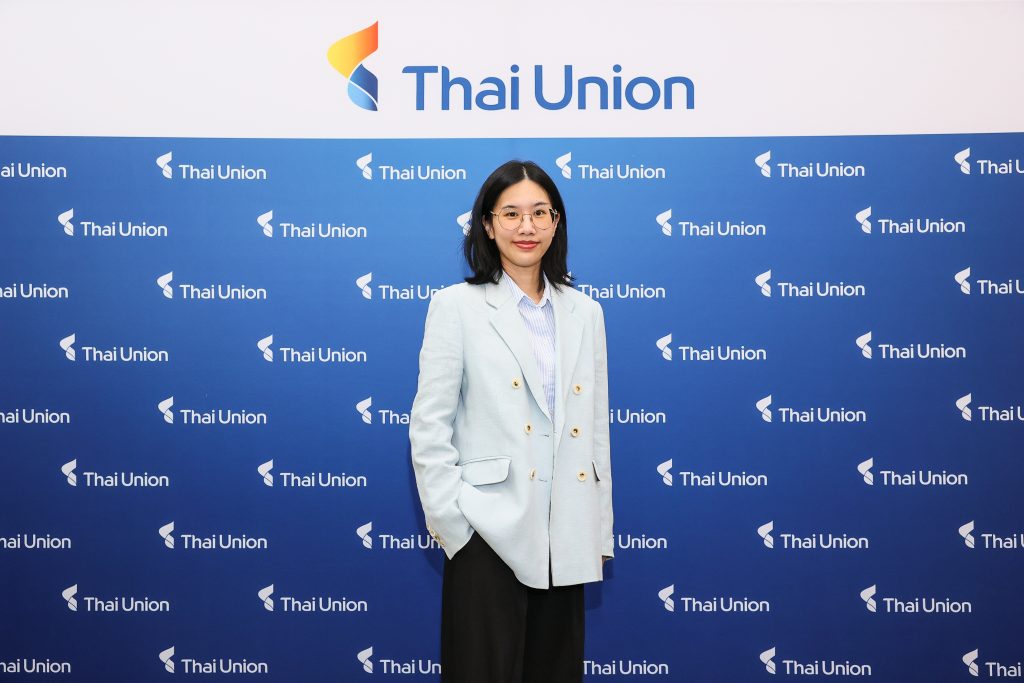
Ms. Fontip Yutthaseri, Sustainable Finance Expert (Consultant) at ADB, said, “Blue Finance has the potential to transform practices in industries relying on ocean resources. Allocating funding with environmental and social considerations, aligned with international standards, will enable farmers to cultivate methods that benefit producers, businesses, society, the environment, as well as biodiversity.”
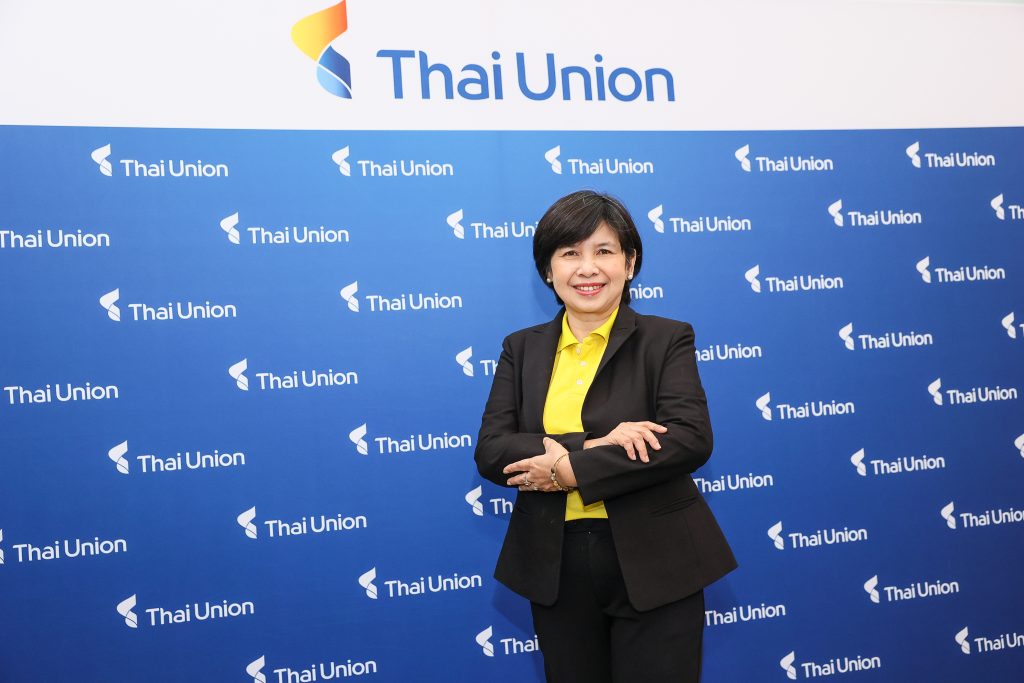
Ms. Montakanti Thamtin, Director of Coastal Aquaculture Research and Development at the Department of Fisheries, noted, “Thailand’s goal is to sustainably advance its aquaculture industry through collaboration with the private sector and financial institutions. Projects aligning with national policies—such as GHG reductions and boosting farm efficiencies—play a vital role in both conserving the environment and strengthening the economic resilience of the aquaculture sector.”
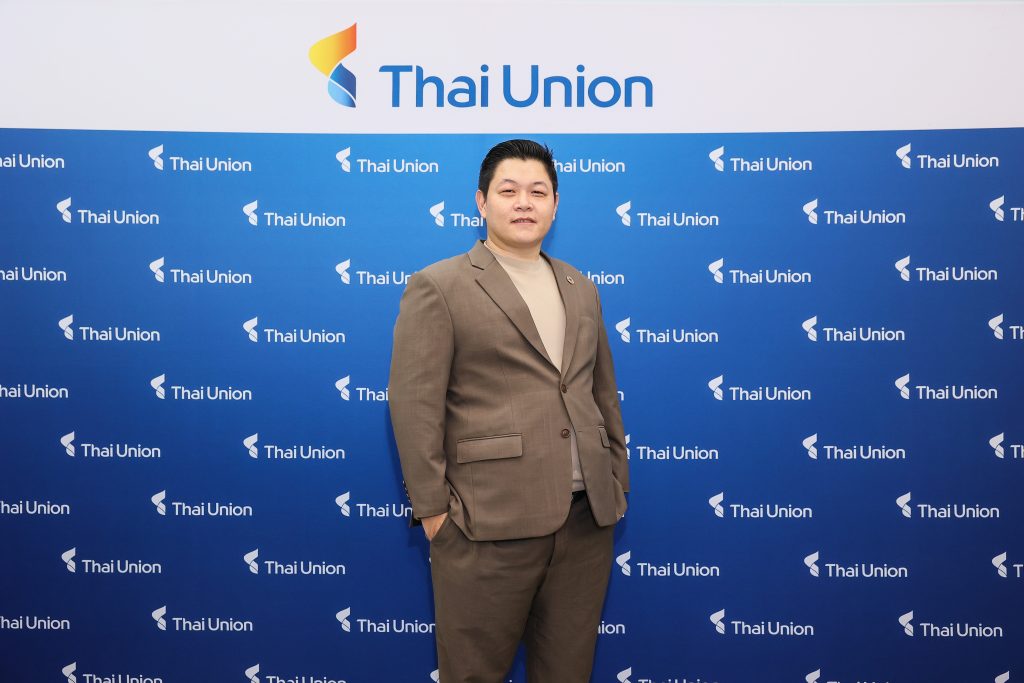
Mr. Ponchat Lueangnaruemitchai, owner of Anan Farm and farmer representative, shared, “Before joining the project, accessing the necessary knowledge, technology, and funding to reduce GHG emissions was complicated and highly challenging. Since joining last year, I’ve gained knowledge and practical experience, improving my technological adaptation. Installing solar panels has drastically reduced energy costs, and using high-quality, sustainably produced shrimp feed has let us use less input and maintain better water quality. These improvements enable us to reach new, sustainability-focused markets. Now, I believe it’s possible to farm in a way that’s good for both the environment and our families.”
While the road to Net Zero is challenging, Thai Union has demonstrated that multilateral cooperation—alongside innovation-driven finance and practical, science-based approaches—can spur genuine transformation.
“We’re not just talking about change. We’re building an ecosystem to make real sustainable transformation happen. This is an opportunity for Thailand to lead, but it requires collaboration from every sector—farmers, financial institutions, regulators, researchers—to extend this project’s impact to hundreds or thousands of shrimp farms and offer a model that could be adapted worldwide,” Mr. Yongyut concluded.

